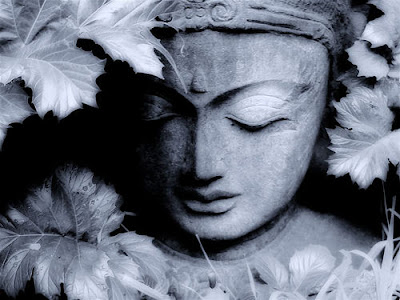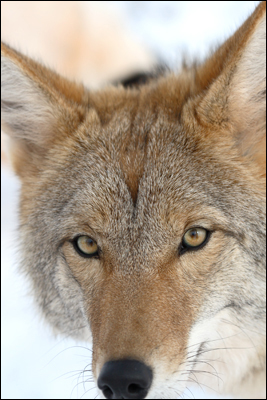.
With all its eyes the natural world looks out
into the Open. Only our eyes are turned
backward, and surround plant, animal, child
like traps, as they emerge into their freedom.
We know what is really out there only from
the animal's gaze;
for we take the very young
child and force it around, so that it sees
objects - not the Open, which is so
deep in animals' faces. Free from death.
We, only, can see death; the free animal
has its decline in back of it, forever,
and God in front, and when it moves, it moves
already in eternity, like a fountain.
Never, not for a single day, do we have
before us that pure space into which flowers
endlessly open. Always there is World
and never Nowhere without the No: that pure
unseparated element which one breathes
without desire and endlessly knows.
A child
may wander there for hours, through the timeless
stillness, may get lost in it and be
shaken back. Or someone dies and is it.
For , nearing death, one doesn't see death; but stares
beyond, perhaps with an animal's vast gaze.
Lovers, if the beloved were not there
blocking the view, are close to it, and marvel...
As if by some mistake, it opens for them
behind each other.. But neither can move past
the other, and it changes back to World.
Forever turned toward objects, we see in them
the mere reflection of the realm of freedom,
which we have dimmed. Or when some animal
mutely, serenely, looks us through and through.
That is what fate means: to be opposite,
to be opposite and nothing else, forever.
~ Rainer Maria Rilke
excerpt from the Duino Elegies, #8
translated by Stephen Mitchell
photo by shreve stockton
.





























.jpg)











